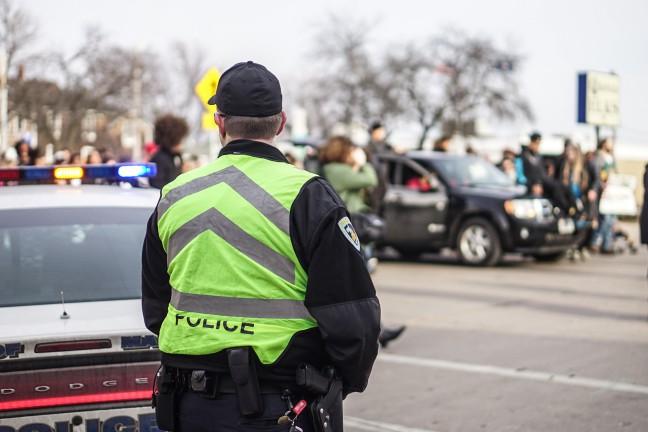Only a few days into her internship with the Madison Police Department last year, Samantha Tiry right away could sense their deep commitment to the community.
As part of her criminal justice certificate program, the University of Wisconsin alumna was required to do an internship in the criminal justice field. She said she knew nothing about policing, but read peer reviews of internships with MPD and decided to explore one.
“I fell in love with getting out in the community, meeting people and helping and talking to them on their worst days,” Tiry said. “I felt like I could make a difference.”
Tiry is one of 23 MPD recruits who were sworn into the academy Sept. 12. Over the next six months, the 59th recruiting class will be trained to become full-fledged police officers.
Now, two weeks into recruitment training, the current MPD recruit said she was surprised and impressed that everyone around her knew people in the community by their first names. Tiry said she is excited to change the view the community has toward police.
Despite excited recruits like Tiry, applications for MPD were at a four-year low in 2016.
Sgt. Tim Patton, MPD’s recruiting coordinator, said recent tensions between police and the community may have contributed to the overall drop in applications that MPD has experienced.
Typically on the low end, the department sees a minimum of 500 applications per year, Patton said. On the high end, historical data has shown nearly 1,600 applications coming in.
Since 2012, the number of applications has dropped more than 50 percent. That year, the department received 1,508 applications. Four years later in 2016, that number has dropped to 673.
While part of the drop can be attributed to an improved economy since MPD is competing with an active job market for applicants, Patton also recognizes the current climate in the country as a potential factor. He said “non-traditional candidates,” who may already have established careers in other fields, are less likely to explore a career at MPD.
“Recent calls for criminal justice reform, the significant attention to policing and policing relationships — specifically with communities of color — may have an impact on the hiring of non-traditional candidates,” Patton said.
Additionally, public confidence in police is dropping to its lowest level in nearly 22 years. According to a 2015 Gallup poll, only 52 percent of Americans have expressed either a “great deal” or “quite a lot” of confidence in police.
Petitioners, protesters clash at City Council meeting discussing support of police
Unsurprisingly, the amount of confidence varied between white and black citizens. UW sociology professor Pamela Oliver said this distrust is likely tied to officer-involved shootings of unarmed people.
Oliver argued there have been longstanding patterns of aggressive and coercive policing in communities of color and distrust in the police among those particular communities isn’t something new.
“Surveys 20 to 30 years ago showed distrust in the police as well, but recent news coverage of police killing unarmed people certainly reduces confidence in police and impacts the perception of police,” Oliver said.
Many people are thinking twice about becoming a police officer as there is a growing potential to be charged for misconduct or use of excessive force for acting in a way they thought was appropriate in the given circumstance, Patton said.
For Tiry, however, instances like those have only motivated her to use her to join the force to change the view toward police. Using her communication skills effectively, she said, is important in deescalating certain situations and upholding a level of transparency with the community.
UW teams up with Madison Police Department to improve officer well-being
But despite the drops in both application numbers and confidence in police, Patton said MPD is looking for candidates who have a desire to serve the community — not police it.
“We want people with strong communicational, relational skills and that are service-oriented people that are ready to contribute to bettering the quality of life,” Patton said.
Most importantly, Patton added, MPD is looking for a track record of engagement. Whether it being involved in one’s neighborhood or on campus, he said MPD values those willing to work inside and outside of their eight hours.
Similarly, Tiry said she hopes to use her experiences from UW to foster relationships with the community during her time at MPD.
“Everyone works hard to keep it a positive atmosphere,” Tiry said. “I hope to use my communications skills effectively so [the community and police] can be on the same level and understand each other.”


